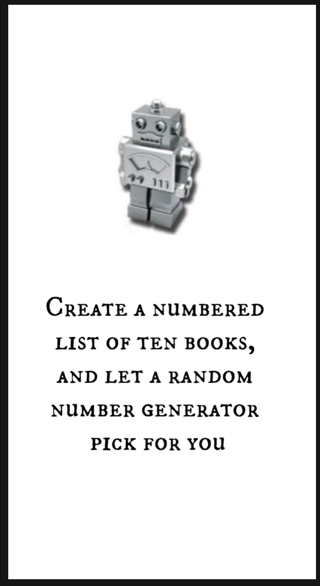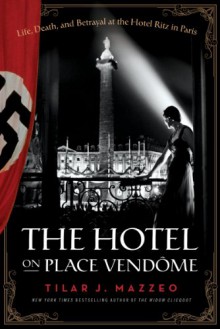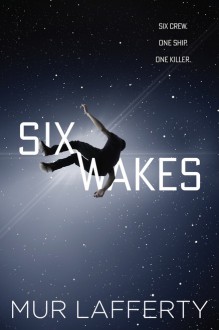
Thanks to Virago and to NetGalley for providing me an ARC copy of this novel, which I freely chose to review.
My father was a fan of Westerns, and although as a child I was tired of always having to watch old Westerns (as a young man, my father used to read the Spanish equivalent of the Western dime novels as well), I must confess that that world, its mythology, and its true history, captivate me as well. And never more so than when the stories chronicle the people who hardly ever make it into the history books (although there has been a move towards redressing that in recent years). So this novel had all the elements to intrigue me, and it is a debut novel as well. And one I won’t forget in a hurry.
This new author has been compared to Cormac McCarthy (but I’ve only read one of his novels, so I don’t feel I can comment), and her choice of characters reminded me of recent books I’ve read and reviewed by Sebastian Barry. I know it is common place to write that you’re surprised a novel has been written by a debut writer, or it is their first novel, but it is the case here, and it’s clear that the author has a talent for writing (and I don’t doubt she has worked very hard at it as well).
The novel, set around the time of the Gold Rush, is divided into four parts, covering a period of around a decade in the life of Lucy (and her sister/brother Sam). The first three parts tell the story of how they got to the situation we find them in at the beginning of the novel, in reverse chronological order (sort of). The fourth part moves forward and we see what happened to Lucy afterwards, and we meet Sam again, albeit briefly. We meet the two sisters when they lose their father (they had lost their mother a few years earlier), see them struggle to try to bury him in the appropriate way (their mother had come from China and had taught them plenty of stories and traditions that they try to follow and live by), and eventually split up. The second part chronicles the events that had happened before, providing a background story of the family and also explaining how they lost their mother. Part three is hauntingly beautiful, and rather than the third person narration from Lucy’s point of view (that grows more insightful and elaborate as the novel advances) we get a narration from Ba, her father’s point of view. It’s not clear if this is his ghost telling the story or some memory that lives on, but it is addressed to Lucy, and it explains things that she does not know, some tragic and terrific, and some beautiful and lyrical. In part four we catch up with the siblings, years later, and learn what happened next. This is historical fiction gold, a revisionist story/history of the West, and a look at some of the forgotten figures and peoples in history.
Many themes are touched upon on this novel. I’ve mentioned history, but this is history from the point of view of outsiders, who although born in the country will never be accepted, and people will always look at them as if they were an exotic plant or animal (the tiger is a symbol hovering over much of the novel), either heaping abuse at them, exploiting them for entertainment or enjoyment, or trying to turn them into object of curio and study. Race and gender are at the forefront of the novel but remain somewhat ungraspable and ambiguous (is Sam a boy in a girl’s body, or a girl whose father’s wish for a son she internalised to the point where she no longer has a will of her own, or something entirely different?). Ultimately, there are myths, lies, pretences, stories we tell others and ourselves, gold prospecting, mining, the building of the railroads, migration, different models of womanhood, of culture, of family… It’s a novel about identity and how we build ours, and how others also cast upon us their own labels and prejudices. It’s a novel about survival and about much more.
Lucy, Sam, and their parents are unforgettable characters. If Lucy is the girly-girl, studious, and prim and proper, and Sam is the tomboy/boy, always following his father, they all play specific roles in their family, and when the family breaks, it’s difficult to keep going. The young sibling is far less naïve and weak than Lucy thinks, and they are both the children of their parents in more ways than they realise. It’s impossible not to feel for these orphans and their terrible circumstances, and the author does a great job of making us share in and understand why they are how they are. The story is at times breathtakingly beautiful and at others horrifyingly ugly, true to life. Although perhaps the style of the writing and the narration might not suit all tastes, I think most readers will connect at an emotional level with the characters, empathise and suffer with them.
The writing style changes throughout the novel, growing with the main character, and becoming more articulate and less impressionistic. The beginning of the novel reminded me of Sebastian Barry’s recent book A Thousand Moons, which also has a young girl as the protagonist, and there is a strong focus on description, not only of the physical world, but also of the emotions and the feelings the character experiences as she is confronted with her personal tragedy. For all her fascination with books and the intelligence that’s supposed to be her strong point, she can be naïve at times, and places too much trust in appearances. Later in the novel she is more insightful and the writing also reflects her progressive enlightenment and what it truly means. I’ve talked about the third part of the book, which is the jewel of the crown for me, but I truly enjoyed it all, although, as usual, I’d recommend prospective readers to check a sample first.
A couple of examples from the book (although I must remind you that I read an ARC copy, so there might be changes in the final version of the book):
‘And Lucy is reminded that what makes Ma most beautiful is the contradiction of her. Rough voice over smooth skin. Smile stretched over sadness —this queer ache that makes Ma’s eyes look miles and miles away. Brimming with an ocean’s worth of wet.’
‘A land stripped of its gold, its rivers, its buffalo, its Indians, its tigers, its jackals, its birds and its green and its living. To move through this land and believe Ba’s tales is to see each hill as a burial mound with its own crown of bones. Who could believe that and survive? Who could believe that and keep from looking, as Ba and Sam do, always toward the past? Letting it drag behind them. Letting it make them into fools.’
The ending might not satisfy readers who prefer everything to be tied up and a clear conclusion, but for me, I couldn’t think of a more fitting ending. I won’t go into details and leave readers to decide.
In sum, this is a book that has a distinct style of writing, tells a fascinating story, full of myths, tales, imagination, and also some truly awful realities of a historical period that has often been written about and represented in films and popular culture, but the official depiction glosses over many of the events and ignores a lot of the people that were there as well, just because their race, gender, lifestyle choices, or a combination of those, does not fit into the traditional history books. Its characters are unforgettable, and I recommend it to readers who enjoy a different perspective on historical events and who don’t mind taking up a narrative whose style might be challenging at times but it’s ultimately rewarding. A great novel.

 Log in with Facebook
Log in with Facebook 






























